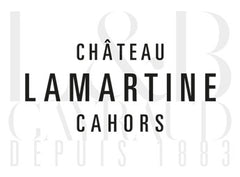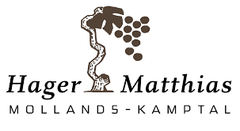33 products
- Red Wine
- Gamay
- Biodynamic, Sustainable, Vegan-Friendly, Volcanic
- Dry
- Residual Sugar: 2.00 g/l
- Medium Bodied
- 750ml
- 13.50% alc./vol
About the Winery
Stéphane Aviron

Stéphane Aviron can be considered a pioneer in his approach to winemaking in Beaujolais, however he would just tell you that he’s simply returning to the traditional practices that have always made fantastic Gamay wines. Sustainable viticulture, extremely old vines and classic Burgundian techniques. He focuses on the Beaujolais village crus, all but forgotten gems of vineyards when the nouveau craze took over, which are the best sites for unique, expressive and terroir driven wines. All of the fruit is sourced from old vines (40+ years), so seeing Vieilles Vignes on the label is a rite of passage, not a privilege. Authenticity and a distinctly Beaujolais style of winemaking is what sets Stéphane apart from the rest.
Press Reviews
WineAlign
92 Points - David Lawrason
This is a very ripe, supple and smooth gamay from a 'cru' village known to make somewhat heartier examples. The nose is soft but fragrant and seductive with strawberry/raspberry compote, red rose and subtle earth. It is medium bodied, elegant and almost glossy smooth with very fine tannin. The length is very good to excellent. Delicious. Chill lightly.
- Red Wine
- Sangiovese
- Dry
- Residual Sugar: 3.00 g/l
- Full Bodied
- 750ml
- 14.00% alc./vol
About the Winery
Cortonesi

“I’m a lucky man who has been given the opportunity to realize my dream and continue my family’s efforts making wine in the land where I was born.” – Tommaso Cortonesi
Tommaso is third-generation winemaker at Cortonesi that owns some of the most prized vineyards in the north and south-east of Montalcino. Favourable geography, rocky soils, and ingenious winemaking all come together to create some of the region's deepest and most elegant Brunello wines.
The Cortonesi family has been making wine since the 1970s. At first, wines were made to be enjoyed by family, friends and neighbours, but then in 1985, Cortonesi had gained enough traction within their community that they began to offer their wines commercially. Today, Cortonesi remains a family business that continues to work according to tradition, while employing modern technologies to the enhance the quality of their production.
Lovers of Sangiovese must experience “La Mannella”, a collection of wines exclusively sourced from Cortonesi's private vine land. This farm covers 56 hectares, eight of which are devoted to the production of some of the world's most coveted and age-worthy Brunello di Montalcino.
Press Reviews
Gardini Note: Brunello di Montalcino 2019 Report
99+ Points - Luca Gardini
One of the two fundamental versions of Brunello by Cortonesi, the emblematic freshness of Sangiovese from the north-western area. Nose with notes of cranberry, with touches of cinnamon and ginger. The drink is brackish-iodized, juicy, with a return of notes of ginger and slightly citrus.
- Fortified Wine, Red Wine
- Sousón, Tinta Roriz, Touriga Francesa
- Sustainable
- Dry
- Residual Sugar: 75.00 g/l
- Full Bodied
- 750ml
- 19.00% alc./vol
Press Reviews
Wine Advocate
94 Points - Mark Squires
The 2018 Vintage Port is a field blend, which is mostly represented as Touriga Franca (30%), Touriga Nacional (20%) and Tinta Roriz (15%), with dollops of others for the rest. It is unoaked and comes in with 86 grams of residual sugar. This is sourced from Quinta Vale d’Agodinho in the Ferradosa Valley, planted in 1983. Dry, stern and very serious, this projects a lot of power, with the fruit well in second place just now. Tight and needing to unravel, this is built to age, which is generally a good thing for Port. This is going to be one that will require a little extra patience, even if it is true that people are diving into Vintage Ports younger than ever these days. It should age and develop well. In fact, three days later, it showed off its good fruit more, while still finishing with firmness. As noted, it's a very dry and serious style, so don't expect a fruit bomb. If that style is your style, this is superb, with plenty of room to improve in the cellar. Its purity is a plus.
- Red Wine, Rosé Wine
- Grenache, Malbec, Sauvignon Blanc, Syrah, Sémillon
- Sustainable
- Dry
- 750ml
About the Winery
Château Barouillet

Chateau Barouillet has been a family business going back at least 8 generations. Vincent Alexis works alongside his father and grandfather to cultivate the land and has moved the winery into organic viticulture, starting to convert the soil in 2010 and fully converting all the vineyards by 2014. In 2020, the obtained their biodynamic certification.
The domaine controls 45 hectares of vines throughout Monbazzillac, Bergerac Pécharmant, and Cotes de Bergerac. Vincent continues to push the biological approach further by working according to the lunar calendar in the vineyards and in the cellar.
Château Lamartine
 The Château Lamartine stands at the extremely west side of the Cahors Appellation, on the oldest of Lot Valley’s terraces. The terroir of the 37 hectares faces South on clay and limestone soils which guarantees a perfect maturity to the Malbec.
The Château Lamartine stands at the extremely west side of the Cahors Appellation, on the oldest of Lot Valley’s terraces. The terroir of the 37 hectares faces South on clay and limestone soils which guarantees a perfect maturity to the Malbec.For four generations, the Gayraud family has given the greatest care to the vines as well as the wine-making. This is the key to get the purest expression from the terroirs.
Domaine de Mauperthuis

A family estate created by Marie-Noëlle & Laurent Ternynck, Domaine de Mauperthuis is located in Prehy, near the town of Chablis. Their wines express the terroir of this amazing region and the vineyards are currently undergoing the transition to organic. Domaine de Mauperthuis covers around twenty hectares of vineyards around Chablis. The estate, in the Burgundy appellation, is planted in Chardonnay, Pinot Noir, Sauvignon and César, on land facing south, benefiting from exceptional sunshine.
Mas Carlot

Mas Carlot is situated in the south of the Rhône Valley, extending across 76 hectares of pebbly land southeast of Nîmes. Originally a 17th century farm, this beautiful estate was resurrected in the 1960's by the Blanc family—it is currently run Cyril Mares of the neighbouring and equally reputable property, Mas Bressades.
The appellation of Costières de Nîmes used to be considered part of eastern Languedoc but the climate, soil, topography and wine are far closer to those just over the river in the Southern Côtes du Rhône. It is now a region very much on the up and is widely recognized as a great source of excellent value wine.
- Red Wine
- Blauburger, Zweigelt
- Biodynamic, Natural, Organic, Vegan-Friendly
- Dry
- Residual Sugar: 2.0 g/l
- Light Bodied
- 750ml
- 12.0% alc./vol
About the Winery
Matthias Hager

The Hager Matthias winery is located in the small village of Mollands in the Kamptal area of Lower Austria. Matthias took over the 12-hectare land and the family business at an early age. He aims to produce the best quality wine possible and to focus on being in balance with nature. The lands are cultivated according to biodynamic principles and are certified Demeter. Matthias has a vast knowledge about plants and insects, and about keeping the flora and fauna in harmony with the vines. Matthias Hager is one of the most experimental winemakers in the Kamptal region, Austria. He understood early how to work with different soil types from loess to clay. He established different product lines to highlight these differences: the blue one representing fresh, lively wines including Grüner Veltliner and Sauvignon Blanc; and the brown line gravitating towards more earthy, flavourful produce and the red line stands for no sulphites!






